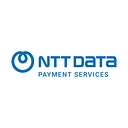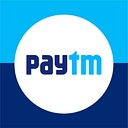Payment Gateways Software for SMBs, Startups, and Freelancers
43 Payment Gateways Software Software Available
Filters

No reviews yet
Cross-border payments and multi-currency accounts for businesses with payment processing and FX tools

No reviews yet
iPay88 streamlines online payments with high approval rates, robust fraud protection, and multi-currency support, ensuring seamless transactions for merchants and customers alike.

No reviews yet
Kushki simplifies online payments with high approval rates, robust fraud protection, and seamless integration, enabling merchants to accept diverse payment methods effortlessly.

No reviews yet
NMI Gateway streamlines online payments with high approval rates, robust fraud protection, and seamless integration, enabling merchants to optimize transactions and boost revenue effortlessly.

No reviews yet
Stripe Payments streamlines online transactions with high approval rates, advanced fraud protection, and multi-currency support, ensuring secure, seamless payments for merchants and customers alike.

No reviews yet
Adyen streamlines online payments with high approval rates, robust fraud protection, and multi-currency support, ensuring seamless transactions for merchants and customers alike.

No reviews yet
Cybersource streamlines online payments with high approval rates, advanced fraud protection, multi-currency support, and seamless integration, ensuring secure and efficient transactions for merchants.

No reviews yet
Checkout.com simplifies online payments with high approval rates, robust fraud protection, and seamless integration, empowering merchants to maximize revenue and enhance customer experience.

No reviews yet
Paytm Payment Gateway streamlines online payments with high approval rates, robust fraud protection, and seamless integration for cards, wallets, and local methods in multiple currencies.

No reviews yet
Mollie simplifies online payments with high approval rates and robust fraud prevention. Accept cards, wallets, and local methods while ensuring seamless integration and secure transactions.

No reviews yet
PayU streamlines online payments with high approval rates, advanced fraud protection, and multi-currency support, ensuring seamless transactions for merchants and customers alike.

No reviews yet
Mercado Pago streamlines online payments with high approval rates, robust fraud protection, and seamless integration, enabling merchants to boost conversion and manage transactions effortlessly.

No reviews yet
Peach Payments streamlines online payments with high approval rates, robust fraud protection, and seamless integration, empowering merchants to optimize conversions and manage transactions effortlessly.
What are Payment Gateways Software?
Processing secure online payments is a complex challenge that every online business must overcome. Payment gateway software platforms (similar to services from Stripe or PayPal) are essential tools for businesses selling products or services on the internet. They act as a secure bridge between your website/app and banking networks, enabling you to accept credit card and digital payments seamlessly. These platforms handle the heavy lifting of encryption, compliance, and communication with financial institutions to ensure each transaction is authorized and funds are transferred safely. By providing an encrypted checkout experience and built-in fraud screening, payment gateways protect both the merchant and customer during online card payments. They also facilitate international transactions by supporting multiple currencies and payment methods, allowing businesses to confidently sell to customers around the world while mitigating fraud risk and ensuring a smooth, trustworthy checkout process.
- Secure Payment Processing & PCI Compliance: Payment gateways encrypt sensitive data and tokenize card information to keep customer payment details safe. They adhere to PCI DSS security standards, ensuring your business meets compliance requirements for handling credit card information.
- Fraud Detection & Prevention: Advanced fraud screening tools are built in – from address verification (AVS) and CVV checks to AI-driven risk analysis and 3D Secure authentication – to identify and block suspicious transactions, reducing chargebacks and unauthorized payments.
- Multiple Payment Methods: A good payment gateway supports a variety of payment options, including major credit and debit cards, digital wallets (like Apple Pay, Google Pay, PayPal), bank transfers/ACH, and even local payment methods. This flexibility lets customers pay with their preferred method, improving conversion rates.
- Multi-Currency & International Support: Top payment gateway tools handle transactions in multiple currencies and across borders. They can display prices in a shopper’s local currency and perform currency conversion or settlement to your home currency, enabling global sales and reaching international customers without a hassle.
- Recurring Billing & Subscriptions: Many payment gateway platforms offer built-in support for recurring payments. This allows businesses to easily manage subscriptions or payment plans by securely storing customer payment details (via tokenization) and charging at set intervals, with features like automated invoicing and retrying failed payments.
- Integration & API Access: Payment gateway software provides easy integration with websites, online stores, and other applications. This often includes developer-friendly APIs, documentation, and pre-built plugins or extensions for popular e-commerce platforms (Shopify, WooCommerce, Magento, etc.) and content management systems. Seamless integration means you can add secure payment processing to your site or app with minimal fuss, and even connect the gateway to invoicing, billing, or accounting systems for end-to-end workflow.
- Reporting & Analytics Dashboards: Comprehensive reporting tools let you monitor transactions and sales in real time. Gateways typically include dashboards for viewing payment activity, settlement reports, refunded or failed transactions, and other key metrics. These insights help businesses reconcile payments, track revenue, spot trends, and make data-driven decisions to improve their payment processes.
Payment Gateway Software FAQ
What is a payment gateway?
A payment gateway is a secure service or software tool that authorizes and processes online payments for businesses. It acts as the middleman between your website or application and the financial institutions involved in a transaction. When a customer enters their credit card or digital wallet details at checkout, the payment gateway encrypts this information and sends it to the relevant banks for approval. In seconds, it confirms if the payment is approved or declined, allowing the transaction to complete safely. In short, a payment gateway enables merchants to accept credit/debit cards and other electronic payments online, handling all the complex communication and security steps behind the scenes.
Who uses payment gateway software?
Payment gateway software is used by anyone who needs to accept payments online. This includes e-commerce merchants of all sizes – from small businesses and startups to large online retailers – as well as service providers, subscription-based companies, SaaS platforms, nonprofits accepting donations, and more. Developers and IT teams use payment gateways by integrating these tools into websites or mobile apps to enable secure transactions. Even brick-and-mortar businesses that sell online or send digital invoices use payment gateways to process those payments. Essentially, any business owner, online merchant, or developer who wants to charge customers via credit card, bank transfer, or digital payment methods will rely on a payment gateway platform (or app) to handle the process reliably and securely.
What features should I look for in a payment gateway tool?
When evaluating a payment gateway tool, look for a few key features. **Security** is paramount – the gateway should offer strong encryption, fraud prevention measures, and be PCI compliant to protect customer data. **Support for multiple payment methods** is also important; choose a gateway that lets you accept major credit/debit cards as well as alternatives like PayPal or digital wallets, depending on your customers’ preferences. If you operate internationally, **multi-currency support** and global payment capabilities are crucial so you can accept payments from different countries. **Integration options** should be considered too – the gateway ought to easily integrate with your website, shopping cart, or app via APIs or plugins, and ideally connect with your other systems (like e-commerce platforms, billing software, or accounting tools). Additionally, look for **recurring billing** features if you offer subscriptions, and a **reporting/dashboard** that provides insight into your sales and transactions. Finally, consider the gateway’s reliability and customer support, as you’ll want a tool that is dependable and offers help if any payment issues arise.
Can payment gateways handle international payments?
Yes, most modern payment gateways can handle international payments. These platforms typically support transactions in multiple currencies and work with global payment networks, allowing you to accept orders from customers around the world. A good payment gateway will let you display prices and charge customers in their local currency while depositing funds to your account in your own currency (or a currency of your choice). They manage the currency conversion and ensure that payment cards issued overseas (Visa, Mastercard, etc.) are accepted just like domestic ones. Some gateways also offer support for region-specific payment methods and comply with local regulations to make cross-border commerce easier. It’s important to verify that the gateway you choose supports the countries and currencies you plan to do business in, but generally payment gateway software is designed to enable smooth international transactions and expand your global reach.
How do payment gateways protect against fraud?
Payment gateways employ multiple layers of security to protect businesses and customers from fraud. Firstly, they secure the transaction data through encryption (SSL/TLS) so that sensitive information like credit card numbers cannot be intercepted. Many gateways use tokenization, meaning the actual card details are replaced with a non-sensitive token for any subsequent charges, keeping real data safe. Beyond data security, gateways have **fraud detection tools** built in: they perform checks such as Address Verification Service (matching the billing address), CVV verification, and monitor transactions for unusual patterns or high-risk signals. Advanced platforms use machine learning or rule-based engines to flag suspicious behavior in real time. Gateways often support additional authentication steps like 3D Secure (Verified by Visa, Mastercard SecureCode, etc.), which adds a layer of customer identity verification for card payments. By combining these measures – encryption, compliance with security standards (PCI DSS), transaction monitoring, and customer authentication – payment gateway platforms significantly reduce the risk of fraudulent transactions and help prevent chargebacks and theft.
Do payment gateways integrate with e-commerce or invoicing systems?
Absolutely. Payment gateway software is designed to integrate smoothly with e-commerce platforms and various business systems. Most leading gateways provide pre-built integrations, plugins, or apps for popular online store platforms such as Shopify, WooCommerce, Magento, BigCommerce, and others – this means you can connect the gateway to your website’s checkout with just some configuration. They also commonly integrate with shopping carts and online marketplaces. In addition, many gateways offer integrations with invoicing, subscription management, or accounting systems (for example, the ability to connect with QuickBooks, Xero, or invoicing software) to automatically record transactions or enable pay-now links on invoices. If a ready-made integration isn’t available, all major payment gateways provide APIs and developer tools, allowing custom integration into virtually any application or backend system. In short, payment gateways are built to slot into your existing e-commerce setup or workflow, so you can streamline payment processing without needing to overhaul your systems.